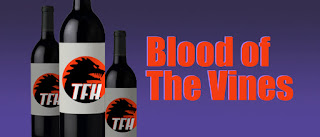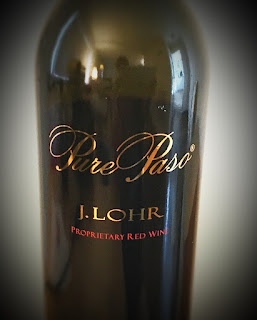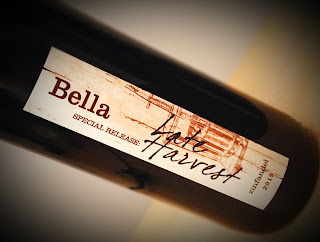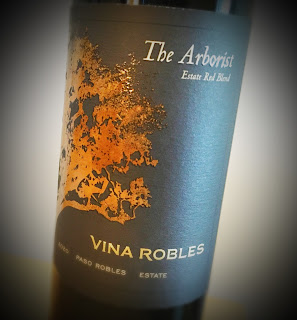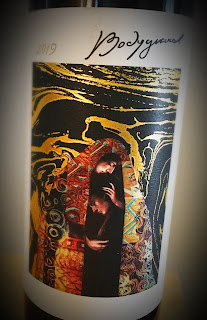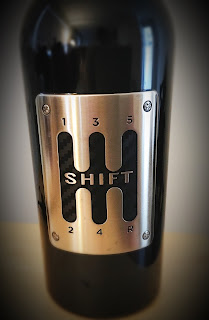Santa Barbara wine country stretches county-wide, and it is a big county. The vineyards north of the city are a great place to hang out, but there is plenty of wine tasting to be done in town.
Jaffurs Wine Cellars is located in downtown Santa Barbara, an easy walk from the beach and from Stearn's Wharf, close to Trader Joe's and reasonably near to La Super-Rica Taqueria, a great stop for lunch.
They have been making great wines at their facility on Montecito Street for more than two decades, specializing in Rhône varieties grown at some of Santa Barbara County's most notable vineyards. Bien Nacido, Thompson, Larner, Stolpman and Kimsey vineyards regularly contribute fruit to the Jaffurs cause.
I paid a visit to Jaffurs on an October trip to Santa Barbara, one which yielded some bakery stops for the wife and wine tasting for me. It was a great day, in large part because the winery was buzzing when I arrived at 11:00 a.m. Winemaker Stephen Searle explained, while hustling from sorters to destemmers to huge bins, that they had just received a load of Petite Sirah grapes from Thompson Vineyard. The tasting table was set up for me right in the middle of the action. It was all I could do to stay out of the way so the crew could work. I was even offered a taste of the raw fruit, a first for me in all my many tasting sessions.
Here are the wines that were poured for me:
Jaffurs Viognier 2022
Sourced from Bien Nacido Vineyard in the Santa Maria Valley AVA, this wine was vinified half in oak and half in steel. The floral nose is beautiful and the marvelous salinity on the palate is breathtaking. There is a very nice acidity level here, too.
Jaffurs Roussanne 2021
Grapes from Stolpman Vineyard in Ballard Canyon make up this wine. It has a wonderful, nutty salinity to go with the prettier fruit and floral descriptors. It was aged in French oak, 17% of which was new. I am told that the next vintage will come from their concrete tank.
Jaffurs Grenache 2020
This wine got ten months in neutral French oak. The fruit was taken from Ballard Canyon. The graceful nose shows roses and the palate is full of cherry flavor.
Jaffurs Santa Barbara County Syrah 2021
Half the grapes came from Bien Nacido Vineyard, along with half from several other vineyards. Aromas of flowers and cherry lead to flavors of cherry and raspberry.
Jaffurs Kimsey Vineyard Syrah 2019
Done up in new French oak, this Syrah has violets, black fruit and that awesome salinity.
Jaffurs Bien Nacido Syrah 2019
This one is made Côte-Rôtie style, with a little Viognier in the blend. It has a sweet floral and fruit nose and a savory taste.
Jaffurs Petite Sirah Thompson Vineyard 2021
A bold nose here, due to the new American oak in which it was aged. The wine has a beautiful sweetness and gorgeous black fruit. It was presented last in the tasting lineup, as a “dessert,” although it is certainly not a dessert wine.


